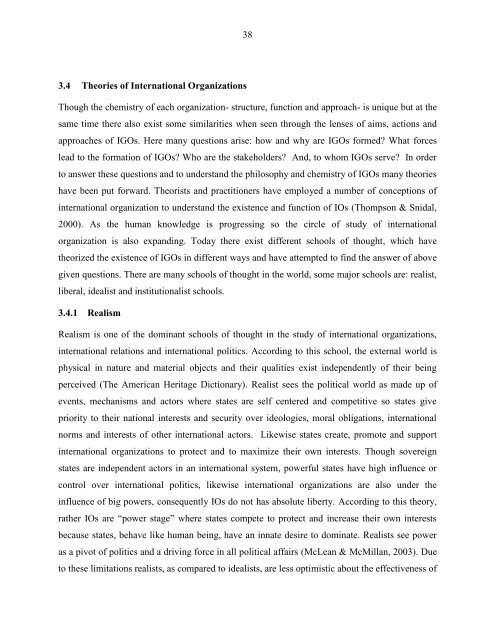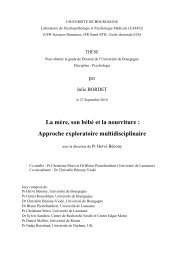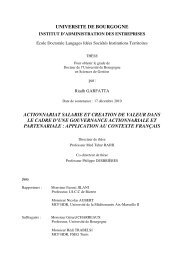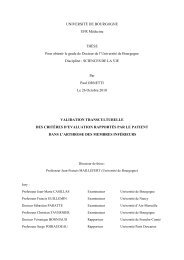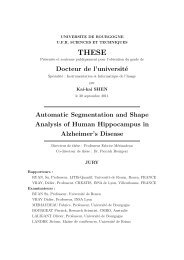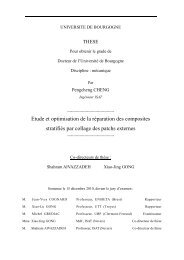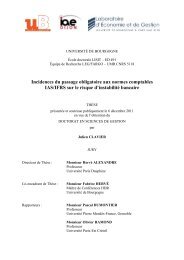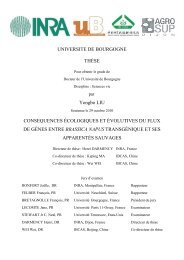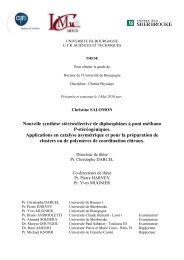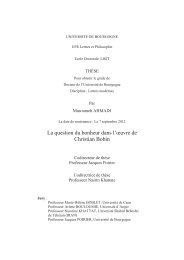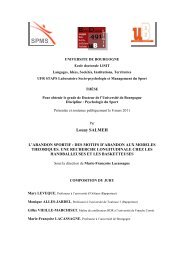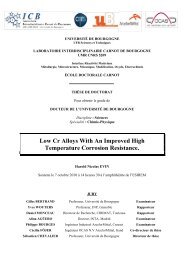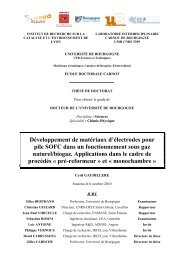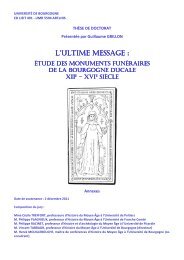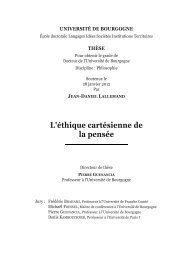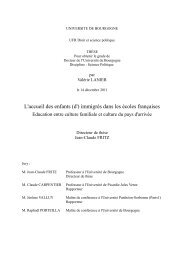Higher education in Asian countries and the role of international ...
Higher education in Asian countries and the role of international ...
Higher education in Asian countries and the role of international ...
Create successful ePaper yourself
Turn your PDF publications into a flip-book with our unique Google optimized e-Paper software.
3.4 Theories <strong>of</strong> International Organizations<br />
38<br />
Though <strong>the</strong> chemistry <strong>of</strong> each organization- structure, function <strong>and</strong> approach- is unique but at <strong>the</strong><br />
same time <strong>the</strong>re also exist some similarities when seen through <strong>the</strong> lenses <strong>of</strong> aims, actions <strong>and</strong><br />
approaches <strong>of</strong> IGOs. Here many questions arise: how <strong>and</strong> why are IGOs formed? What forces<br />
lead to <strong>the</strong> formation <strong>of</strong> IGOs? Who are <strong>the</strong> stakeholders? And, to whom IGOs serve? In order<br />
to answer <strong>the</strong>se questions <strong>and</strong> to underst<strong>and</strong> <strong>the</strong> philosophy <strong>and</strong> chemistry <strong>of</strong> IGOs many <strong>the</strong>ories<br />
have been put forward. Theorists <strong>and</strong> practitioners have employed a number <strong>of</strong> conceptions <strong>of</strong><br />
<strong>in</strong>ternational organization to underst<strong>and</strong> <strong>the</strong> existence <strong>and</strong> function <strong>of</strong> IOs (Thompson & Snidal,<br />
2000). As <strong>the</strong> human knowledge is progress<strong>in</strong>g so <strong>the</strong> circle <strong>of</strong> study <strong>of</strong> <strong>in</strong>ternational<br />
organization is also exp<strong>and</strong><strong>in</strong>g. Today <strong>the</strong>re exist different schools <strong>of</strong> thought, which have<br />
<strong>the</strong>orized <strong>the</strong> existence <strong>of</strong> IGOs <strong>in</strong> different ways <strong>and</strong> have attempted to f<strong>in</strong>d <strong>the</strong> answer <strong>of</strong> above<br />
given questions. There are many schools <strong>of</strong> thought <strong>in</strong> <strong>the</strong> world, some major schools are: realist,<br />
liberal, idealist <strong>and</strong> <strong>in</strong>stitutionalist schools.<br />
3.4.1 Realism<br />
Realism is one <strong>of</strong> <strong>the</strong> dom<strong>in</strong>ant schools <strong>of</strong> thought <strong>in</strong> <strong>the</strong> study <strong>of</strong> <strong>in</strong>ternational organizations,<br />
<strong>in</strong>ternational relations <strong>and</strong> <strong>in</strong>ternational politics. Accord<strong>in</strong>g to this school, <strong>the</strong> external world is<br />
physical <strong>in</strong> nature <strong>and</strong> material objects <strong>and</strong> <strong>the</strong>ir qualities exist <strong>in</strong>dependently <strong>of</strong> <strong>the</strong>ir be<strong>in</strong>g<br />
perceived (The American Heritage Dictionary). Realist sees <strong>the</strong> political world as made up <strong>of</strong><br />
events, mechanisms <strong>and</strong> actors where states are self centered <strong>and</strong> competitive so states give<br />
priority to <strong>the</strong>ir national <strong>in</strong>terests <strong>and</strong> security over ideologies, moral obligations, <strong>in</strong>ternational<br />
norms <strong>and</strong> <strong>in</strong>terests <strong>of</strong> o<strong>the</strong>r <strong>in</strong>ternational actors. Likewise states create, promote <strong>and</strong> support<br />
<strong>in</strong>ternational organizations to protect <strong>and</strong> to maximize <strong>the</strong>ir own <strong>in</strong>terests. Though sovereign<br />
states are <strong>in</strong>dependent actors <strong>in</strong> an <strong>in</strong>ternational system, powerful states have high <strong>in</strong>fluence or<br />
control over <strong>in</strong>ternational politics, likewise <strong>in</strong>ternational organizations are also under <strong>the</strong><br />
<strong>in</strong>fluence <strong>of</strong> big powers, consequently IOs do not has absolute liberty. Accord<strong>in</strong>g to this <strong>the</strong>ory,<br />
ra<strong>the</strong>r IOs are “power stage” where states compete to protect <strong>and</strong> <strong>in</strong>crease <strong>the</strong>ir own <strong>in</strong>terests<br />
because states, behave like human be<strong>in</strong>g, have an <strong>in</strong>nate desire to dom<strong>in</strong>ate. Realists see power<br />
as a pivot <strong>of</strong> politics <strong>and</strong> a driv<strong>in</strong>g force <strong>in</strong> all political affairs (McLean & McMillan, 2003). Due<br />
to <strong>the</strong>se limitations realists, as compared to idealists, are less optimistic about <strong>the</strong> effectiveness <strong>of</strong>


